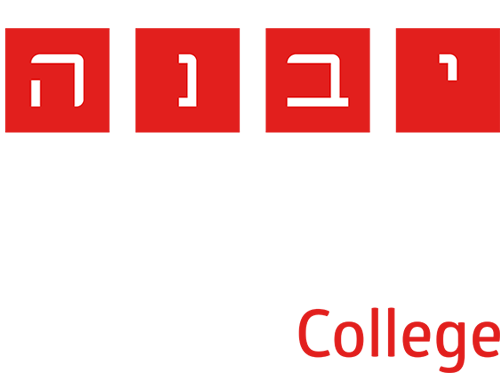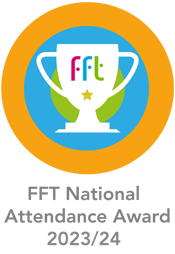Our curriculum across both KS3 and KS4 is driven by our vision:
‘We want to develop motivated, independent, resilient learners. We believe Science will develop problem solvers, with a solid understanding of key scientific concepts and the ability to apply their knowledge to unfamiliar situations.’
Vision Statement
It is our desire to help fuel the next generation with a passion for science, to build their Science capital, so they feel that science ‘is for me’. To allow everyone the opportunity to develop a scientific mind as well as being able to develop their practical skills for scientific investigation.
To develop motivated, independent, resilient learners. Science will develop problem solvers, with a solid understanding of key scientific concepts and the ability to apply their knowledge to unfamiliar situations.
Intent – To teach key scientific concepts in a logical sequence based on prior learning, to build in depth understanding of these concepts and to develop practical skills and higher order thinking skills. To ensure students can apply their knowledge. The Science curriculum will also actively support literacy and numeracy.
Implementation – Science is taught by subject specialists who are passionate about science. Lessons are engaging and challenging with support provided where necessary. There is a wide mix of teaching strategies and a focus on practical work wherever possible. Assessment is regular and timely, allowing teachers to follow the progress of all students.
Impact – Students will have gained a broad knowledge of key concepts in Science. They will be aware that scientific ideas are constantly changing and they will be interested in scientific innovation. They will have gained the knowledge, thinking skills and practical skills to be successful academically and to see themselves studying science in further education or pursuing a scientific career.
We aim to stimulate pupils’ interest in the natural world. To build upon every child’s natural curiosity and develop their ability to question how and why natural phenomena exist. We seek to help pupils understand that science is a subject which is always evolving as new ideas and theories are developed and tested and that facts cannot simply be learned from a book.
Our aim is that every pupil understands the relationship between humans and natural phenomena including in the fields of medicine, technology and environment.
We aim to equip every pupil with the skills and scientific dispositions they will require in their everyday lives and future scientific study.
We hope that they will develop an enthusiasm for, and wider interest in, the sciences beyond the taught curriculum.
KS3 Implementation
Our KS3 scheme of learning is designed to introduce students to key concepts in Science and to be part of a 7 year spiral curriculum where students deepen their knowledge and learn to apply their understanding to unfamiliar contexts. This is based on the National Curriculum and takes account of previous learning in KS2.
Lessons and topics are carefully sequenced to be age and stage appropriate and based on evidence about how students learn best.
Each lesson will have opportunities for:
Retrieval practice – all lessons start with a recall task either based on the last lesson, a previous topic or previous learning from KS2
Taking in part in discussions that challenge and stretch – students are encouraged to share what they think and to explain their reasoning
Structured practice – modelled by the teacher, practised together and then independently
Self and / or peer assessment – green pens are use to improve and correct work
Checking whole class understanding – either through using mini whiteboards, hinge questions or IT e.g. bookwidgets, foot prints, forms quizzes – all low stakes but powerful tools
KS3 Impact
Progress of all pupils in science is monitored continuously in lessons and with end of topic assessments. Pupils are given clear verbal feedback during their lessons on their progress in specific tasks and subsequently be given an opportunity to improve and correct any errors.
Pupils are given individual feedback after each assessment which highlights both strengths and areas where they need to improve. They the complete ‘Next Steps Tasks’ which gives them appropriate opportunities for further participation and improvement.
KS3 Intent
Over the course of Year 7 and 8, our students will study and learn the following:-
| Working Scientifically | How to ask scientific questions, planning investigations, recording, analysing and evaluating data |
| Organisms | Cells, structure and function of body systems including breathing and gas exchange, reproduction in animals and plants, health and lifestyle, the digestive system |
| Ecosystems | Ecosystem processes – photosynthesis, respiration, food chains and webs, ecosystems |
| Genes | Adaptation and inheritance – variation, competition, inheritance, natural selection and extinction |
| Matter | Particles and their behaviour, elements atoms and compounds, the periodic table, groups 1, 7 and 0, separation techniques |
| Reactions | Chemical reactions, acids and alkalis, metals and their reactions |
| Earth | The Earth and its atmosphere, climate change and recycling |
| Energy | Energy stores, energy and temperature, energy transfer via particles and radiation, energy resources, energy and power, work energy and machines |
| Electromagnetism | Electricity and magnetism – current, potential difference, series and parallel circuits, magnets and magnetic fields, electromagnets |
| Forces | Introduction to forces |
| Waves | Introduction to waves – sound and light, space and the night sky |




